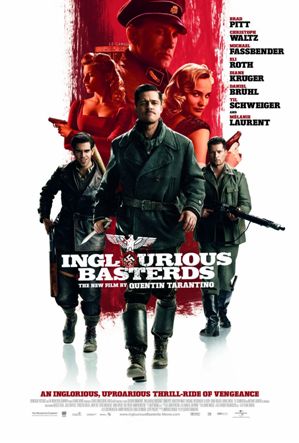My Queue Goes to the Movies:
Directed by James Cameron
Starring Sam Worthington, Zoë Saldaña, Stephen Lang, Michelle Rodriguez, Giovanni Ribisi, Sigourney Weaver
Avatar. Looks expensive.
Given the budget and the fear Cameron’s directorial clout induces on his underlings, it’s a wonder this film didn’t descend into a Phantom Menace-esque self-indulgent disaster.
Lying somewhere between Dances with Wolves and Return of the Jedi, this over-hyped sci-fi epic definitely dazzles. It’s hard to find fault with something so technologically polished, acutely tuned in the way only a half a billion dollars can do. Everything from the the facial expressions and performances translated by the motion capture, to the awe-inspiring 3D environments and creatures all serve to immerse the viewer in an experience that many people are saying they dream about the night after watching.
Yet as I sat there in my seat for the first, second, and final hour of the film, one word kept nagging at the back of my brain.
Ewoks.
Anyone who’s ever wanted to stick their ponytail in their cat’s ear and read its thoughts can skip this paragraph. I’m not the only person who’s griped about the alien design. While this film does have heart and is immersive, it’s easy to slip out of the illusion when a character looks just a little too wide-eyed and goofy. The performances come through the facial rigs, but there’s still something inherently cringe-worthy every time the alien princess screams a Xena battle-cry or you’re watch a family of Na’vi mowed down by machine-gun fire. Think of that one shot with Ewok lamenting the death of his comrade in Jedi. That’s what I’m talking about.
But that’s not my main reservation about giving this movie four-stars. It’s the story. It’s derivative and predictable. The characters were archtypical and mostly one-dimensional. The sense of deja vu you get when watching The Abyss and this film is palatable.
The simple fact that we’ve seen this story before so many times, and done better for hundreds of millions of dollars less makes you take pause and wonder what the billions of dollars surrounding this film both in cost and revenue could have done to resolve a real-life territorial invasion. I marveled on what each shot must have cost and wondering, is the story better than Battle for Terra? A film that came out earlier this year with the exact same plot but made for a hundredth of the cost of Avatar. Better than Ferngully? Or Star Trek: Insurrection? Well, that last one, yes.
Is it better than Dances with Wolves or have a bigger impact? Maybe this is this generation’s Dances. Will the theme stay with you and make you think about taking up arms against corporate greed and industrialism? How can you when the film’s production is mired in financial excess?
But spectacle seems to be what this movie is all about and if seen in Imax 3D, a spectacle is what you’ll get. Is it gorgeous? Yes. Will you want to see it again? The three hour time stamp will probably deter multiple viewings. Will you walk away discussing its cultural ramifications with your friends? No. This is superficial entertainment.
But damn it looks nice.
Other films by the director: Titanic (1997), Terminator 2 (1995), The Abyss (1989)









